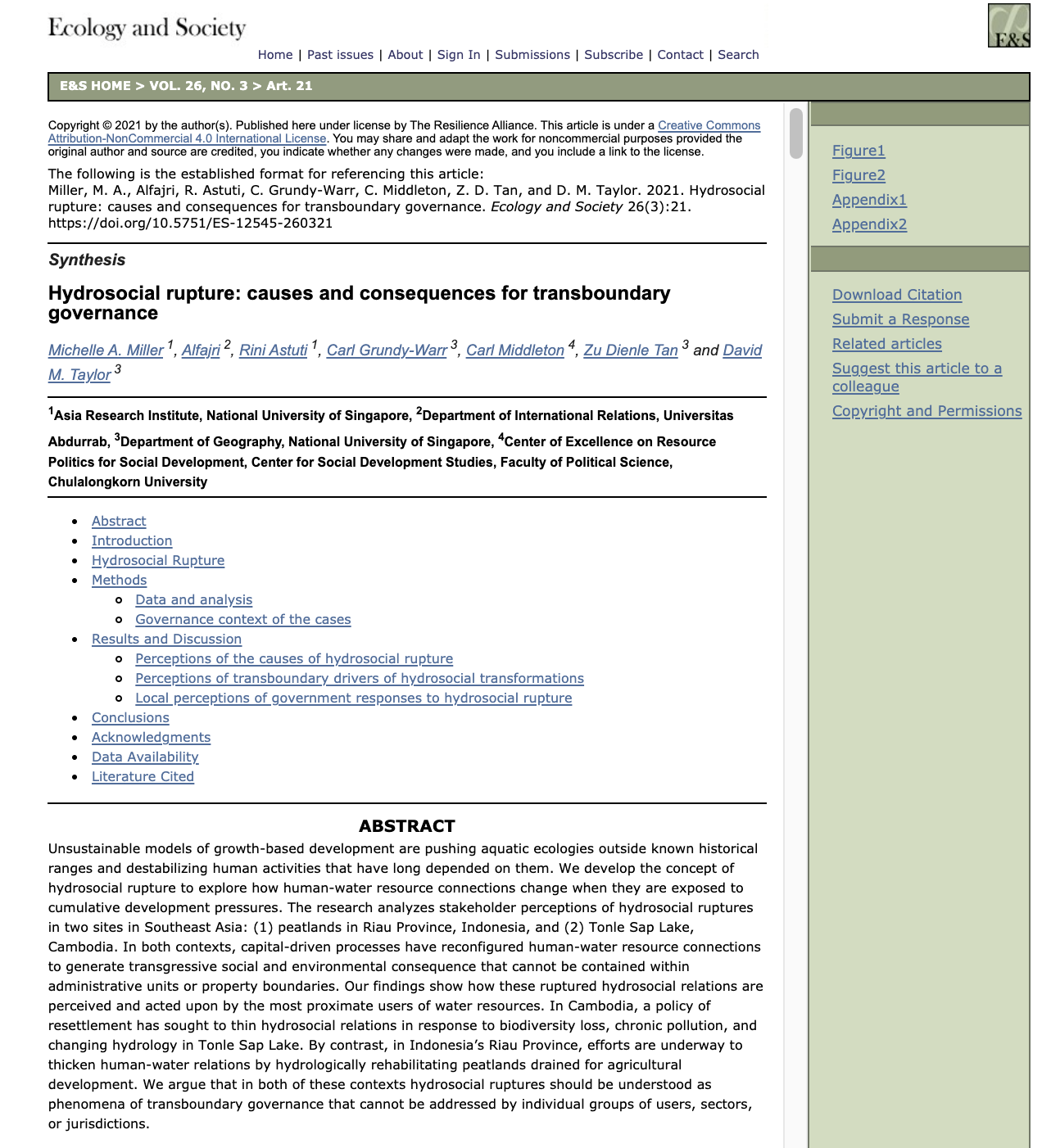JOURNAL ARTICLE: Shifting Practices and Experiences of Development Cooperation in Southeast Asia: Understanding Local Voice and Agency
/Publication date: March 30, 2024
Publication: Journal of International Development Studies
Authors: Carl Middleton and Soyeun Kim
Download the article here.
Over the past two decades, the landscape of development cooperation has profoundly shifted in Southeast Asia. Actors providing, receiving, influencing and affected by development cooperation have diversified. The role of Western donors that were particularly influential in the 1990s has diluted as new forms of development cooperation have emerged and associated finance grown in size, including South-South cooperation for example by China, climate funds, and philanthropic foundations. Seemingly, a ‘new age of choice’ exists for the governments of Southeast Asia. Yet donors are also pursuing their (national) interests through development cooperation often under conditions of intensified ‘donor competition’, which are navigated with varying degrees of success by recipient countries.
While these trends are relatively well documented in Southeast Asia, less attention has been paid to the perspectives and agency of local actors including civil society, impacted communities, and the diverse voices within governments. This includes the opportunities and challenges within the shifting development cooperation landscape. To explore these topics, on 27 March 2023 the Japan Society for International Development (JASID) organized a WriteShop in collaboration with the Center for Social Development Studies (CSDS) and M.A. and Ph.D. Program in International Development Studies (MAIDS-GRID), Faculty of Political Science, Chulalongkorn University. Nine working papers were presented that detailed cases from across Southeast Asia, including Vietnam, Cambodia, Laos, Myanmar, Philippines, Indonesia and Thailand, and of these two papers are published in this current issue of the Journal of International Development Studies.
Citation: Middleton, C., & Kim, S. (2024). Shifting practices and experiences of development cooperation in Southeast Asia: Understanding local voice and agency. Journal of International Development Studies, 32(3), 1–4. https://doi.org/10.32204/jids.32.3_1







